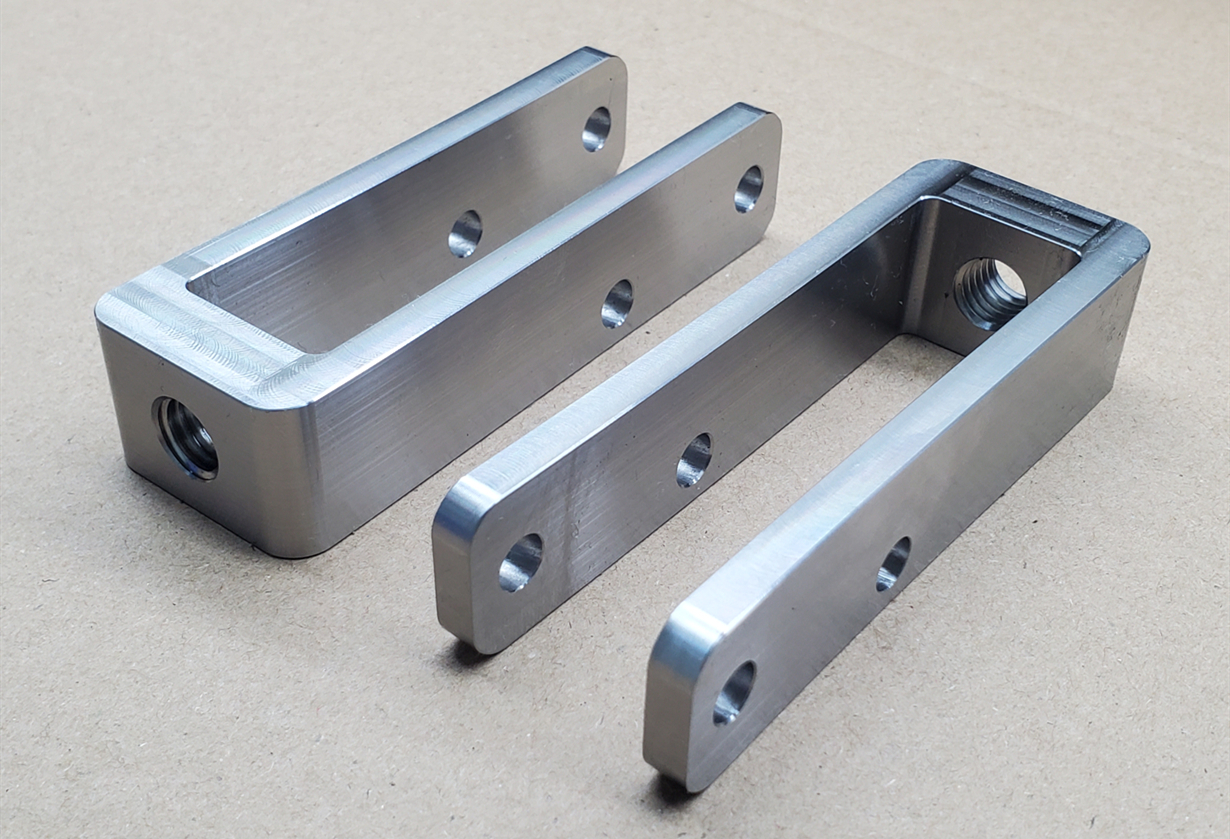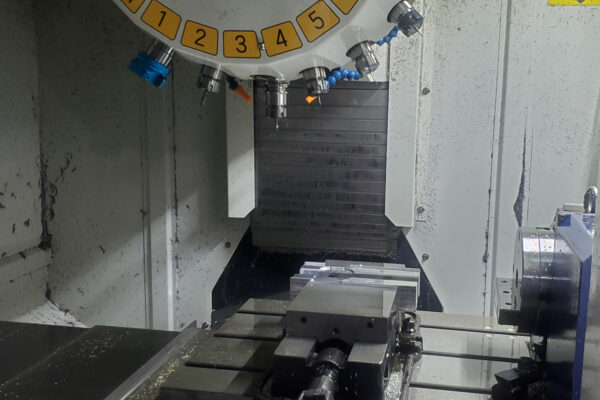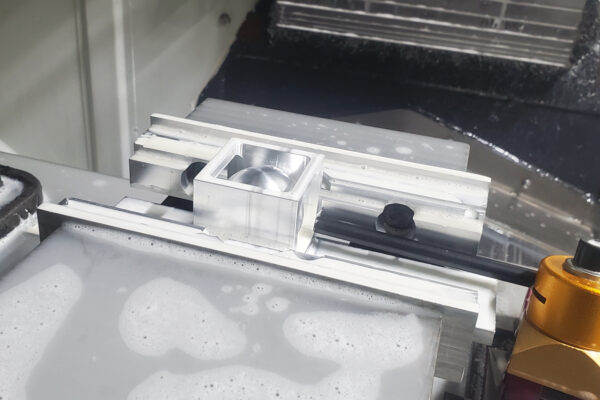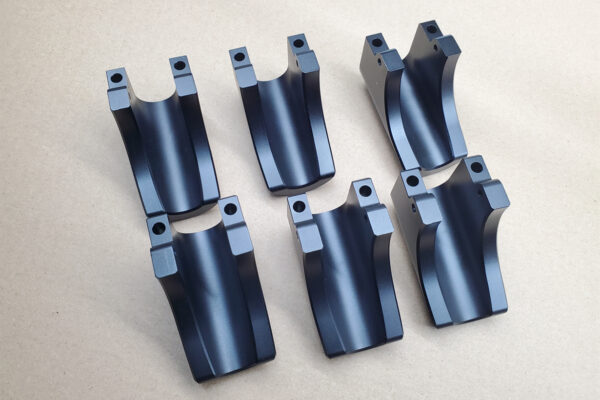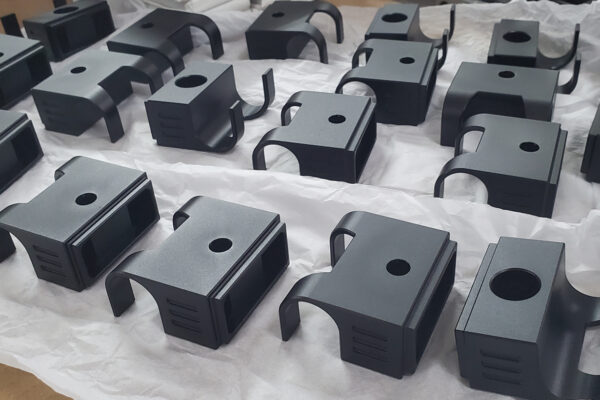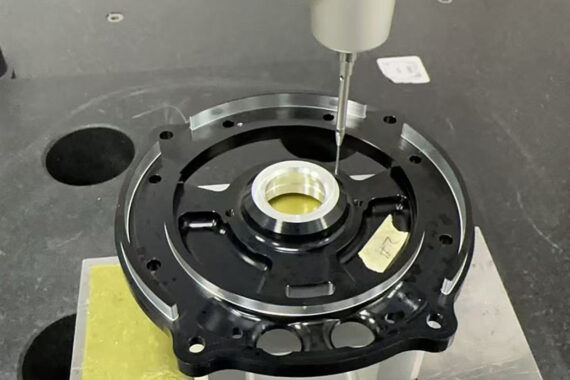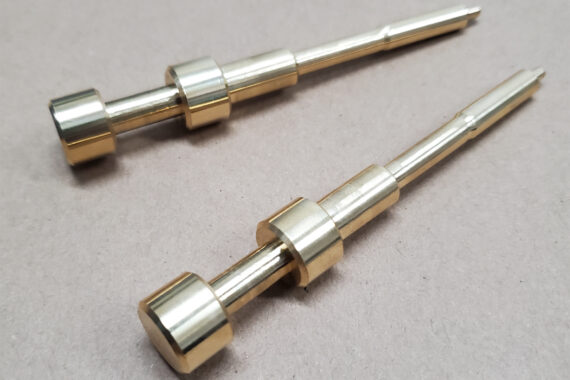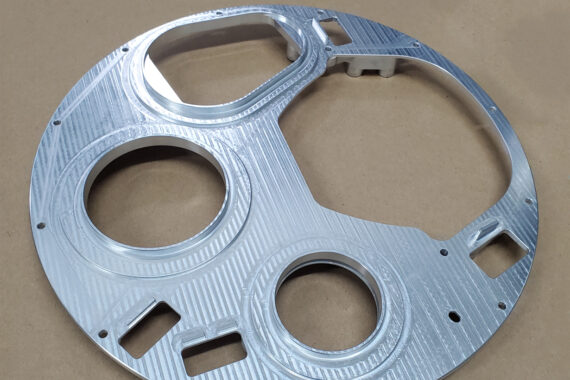In the rapidly evolving world of manufacturing, CNC machining has emerged as a cornerstone...
The CNC milling process is a metal processing method using CNC machine tools. The high-speed rotating milling cutter moves on the blank to cut out the required shape and features. This method can process simple shapes, such as milling contours and grooves, and complex shapes and features, such as molds, housing, jigs, thin-walled complex surfaces, prostheses, impellers, etc.
CNC milling uses a rotating multi-edge tool to efficiently cut the workpiece. During processing, the tool rotates as the main motion, and the workpiece moves as the feed motion or the workpiece is fixed while the tool moves. This process removes material from the workpiece to create the desired shape and features. CNC machines can perform three-axis or multi-axis milling, allowing for complex processing of various shapes and features.– CNC Milling Processing Manufacturer
Common Types of CNC Milling
CNC Milling is a commonly used method in mechanical processing. Various CNC milling methods and cutting parameters can produce workpieces with different performance characteristics. Common types of CNC milling include plane, vertical, solid, spiral, and profile milling. Each type of milling requires specific cutting methods and tools, and cutting parameters are adjusted based on the workpiece’s shapes and material properties to achieve the best processing effects.
- Plane milling is used for machining planes, is suitable for mass production, and is commonly used for machining planes, grooves, concave and convex surfaces, etc.
- Vertical milling is used for processing vertical surfaces, suitable for using the workpiece’s gravity and structure, and is often used for processing vertical surfaces, grooves, concave and convex surfaces, etc.
- Three-dimensional milling can machine both flat and vertical surfaces, making it suitable for complex-shaped workpieces.
- Helical milling is utilized to machine spiral parts such as threads and spiral grooves and is commonly used for processing linear spiral parts.
- Profile milling is used to machine workpieces with irregular shapes, such as gears and cams.
Materials suitable for CNC Milling
When selecting materials for milling components, several factors should be considered. These include the material’s machinability, the properties required of the final product (such as strength, weight, and corrosion resistance), production volume, and material cost.
As a professional CNC machining manufacturer in China, our CNC workshop offers 3-axis, 4-axis, and 5-axis CNC milling services capable of processing various materials.
- Aluminum,
- Copper,
- Steel,
- Stainless steel,
- Titanium alloy,
- Brass,
- Copper,
- Nickel alloy
- POM,
- Acetal,
- Delrin,
- ABS,
- PEEK,
- PTFE,
- Acrylic/PMMA,
Advantages of CNC Milling
As an essential modern manufacturing technology, CNC milling has the advantages of high precision, high efficiency, and high flexibility and is widely used in precision parts processing in various fields.
- High Precision: CNC milling machines can achieve high-precision machining to meet the manufacturing of parts with high precision requirements. These machines rely on computer instructions to manufacture parts, which eliminates the possibility of human errors common in manually operated machines. As a result, complex parts can be created accurately, achieving tolerances as low as 0.005mm.
- High efficiency: CNC milling machines are capable of automatically completing multiple processes, reducing manual operations, and improving processing efficiency. These machines are equipped with a rotating turntable that can accommodate up to 30 different tools, which are automatically changed on the spindle during the processing operation, allowing for quick and efficient cutting operations. By using a CNC milling machine, parts can be prepared in a matter of hours, whereas traditional methods may take days or even weeks to complete.
- High flexibility: CNC milling machines can adapt to processing parts of different shapes and sizes without changing the machine tool or adjusting the fixture, saving time and cost. This flexibility enables CNC milling machines to process parts with particularly complex contour shapes or challenging-to-control dimensions, such as structural parts, housing parts, etc.
- Broad Applicability: CNC milling machines are compatible with various materials, including plastics, metals, and composites. As long as you have a block of material, a CNC milling machine can process it, which makes CNC milling highly applicable in a wide range of applications.
CNC Milling Manufacturers
We are a professional CNC milling manufacturer providing high-precision CNC milling processing services to various industries, customizing CNC milling parts and components according to customer needs.
The most popular materials processed in our CNC milling services are Aluminum, Stainless Steel, Steel, Copper, Titanium, Nickel, POM, Acetal, and Delrin. The tolerance of the CNC milled metal parts can reach ±0.005mm.
Welcome to contact us. Our affordable prices, product quality, and high-quality services are what we always consider for our customers.

